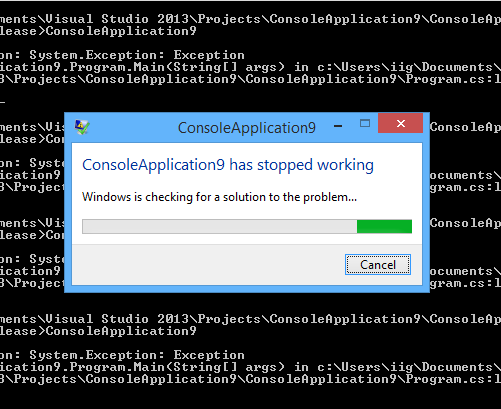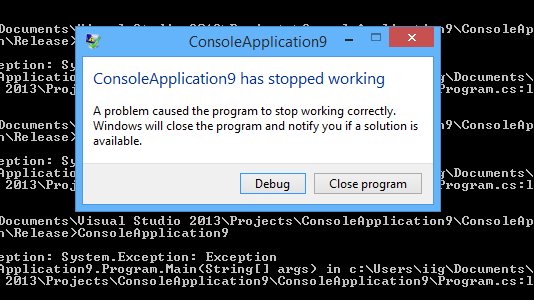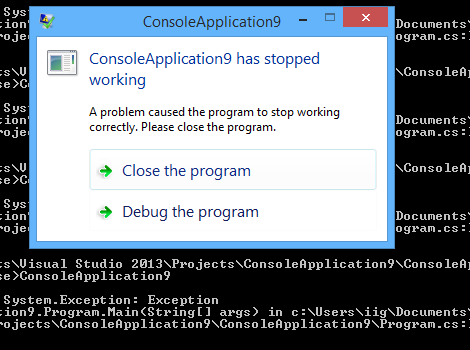Consider we have this snippet of code:
static void Main(string[] args)
{
try
{
throw new Exception("Exception");
}
catch
{
throw;
}
finally
{
Console.WriteLine("------finally-----");
}
}
We have unhandled exception and finally block.
When werfault is enabled and I press Cancel when it is trying to "automatically solve problem" finally block executes.
But if I'm not pressing Cancel and in the next window clicking Close The Program finally block doesn't execute.
And finally when I disable werfault and click Close Program finally block executes.
I didn't find any documentation in c# spec that describes this situation. Also I found this on MSDN:
Execution of the finally block after an unhandled error depends on how the exception unwind operation is triggered.
But there is no explanation, anyone can describe why this is happening ?
Update 1: I have tested it in .Net Framework 4.5.1 and 4.5.2.



